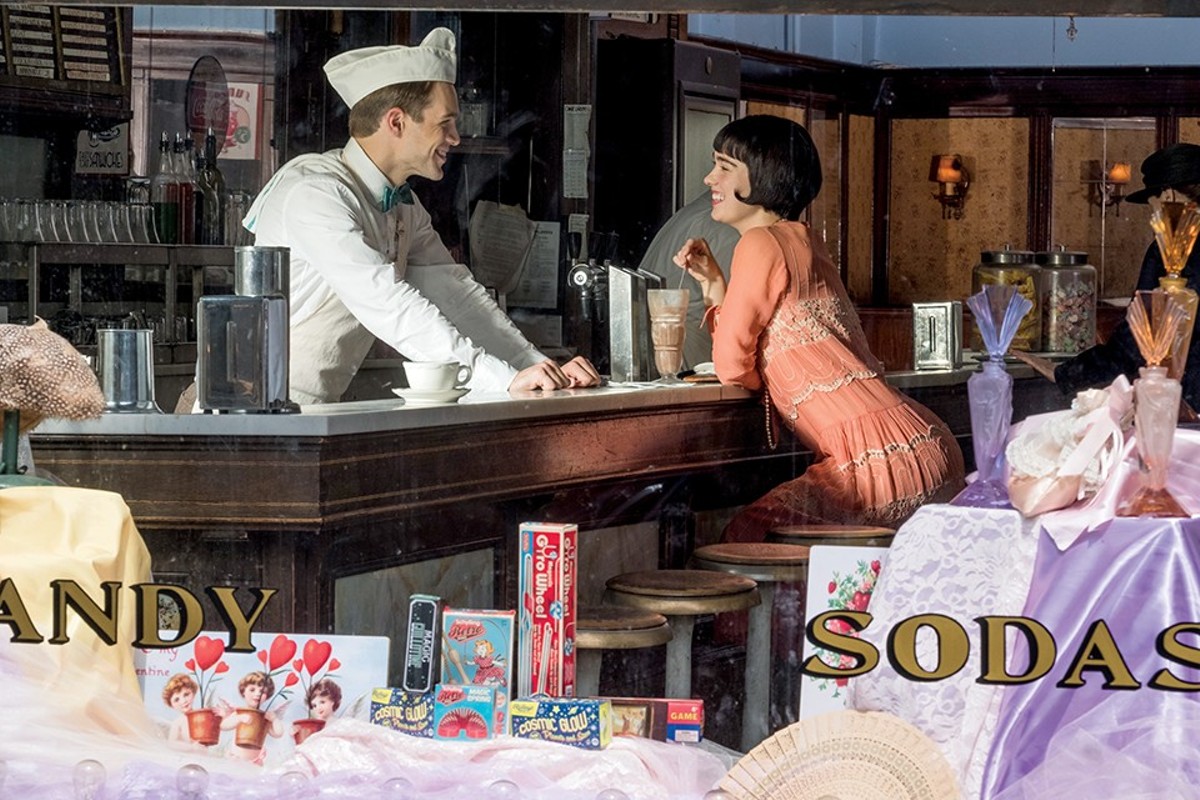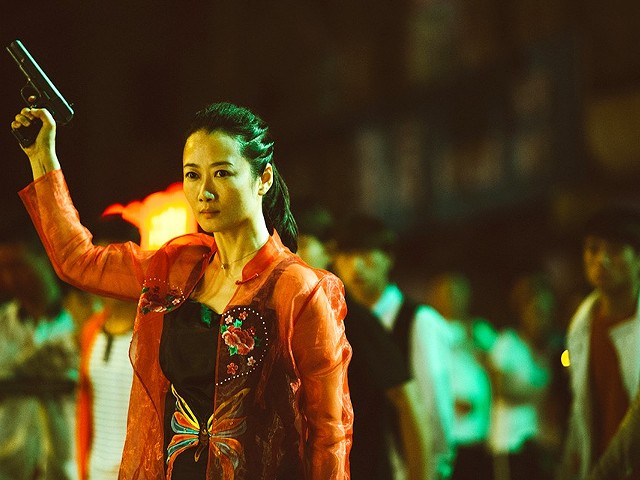The Chaperone begins in Wichita, Kansas, in 1922, where the news of bold changes in art, music and dance is viewed with suspicion. Fifteen-year-old Louise Brooks (yes, that Louise Brooks) has been given the opportunity to study with a renowned dance company. Overhearing that her father frowns on the idea of his young daughter heading off unaccompanied to New York City, Norma Carlisle (Elizabeth McGovern), middle-aged and unhappily married, introduces herself and offers to join Louise on her sojourn to the big city. Despite little common ground, the two women head off, each with a private agenda that can't be fulfilled in cowtown.
Louise rapidly becomes the prize pupil of the Denishawn School of Dance and pursues the other pleasures of Jazz Age urban life (speakeasies and obliging young men), while Norma makes furtive visits to a local orphanage, hoping to uncover the identity of her birth parents. Aided by the orphanage's friendly handyman Joseph (Géza Röhrig), a widower with a tragic past and a questionable accent, Norma's search turns out to be anticlimactic next to her other big secret: the details of her unfortunate marriage, revealed in clumsy flashbacks.
The first theatrical film released by PBS and produced through its long-running Masterpiece series, The Chaperone is 103 minutes of unashamed pandering to a middlebrow audience that likes its films sophisticated on the surface, but without any intellectual heavy lifting. Guided by a pair of Downton Abbey veterans (screenwriter Julian Fellowes, director Michael Engler), the film spells out its intentions, overloads itself with underdeveloped topicality and carefully removes any trace of ambiguity. Cultural and social issues like feminism and sexuality are carelessly tossed about and given a polite nod before being set aside as rapidly as they appeared.
This is a story of personal growth told in capital letters, a condescending film that sets its dramatic sights low and congratulates itself for hitting all the right sophisticated tones. Despite an engaging performance from McGovern (and an appealingly bouncy one from Haley Lu Richardson as Brooks), there's not much depth. The characters don't have personalities, they just have opinions — about sex, Prohibition and Edith Wharton novels. These don't carry any weight; you're merely meant to acknowledge them without giving them much thought. Even the plot twists and revelations (Brooks has her own secret) are delivered with a smug wink, a self-congratulatory sense of worldliness.
Aside from its curious air of feel-good jadedness, The Chaperone simply doesn't have anything to say, not about the characters in it nor the changing social climate around them, and certainly not about the historical figure it so shamelessly exploits. Does it matter that Mrs. Carlisle's charge, as we're told from the very first scene, will go on to become the star of Pandora's Box and Diary of a Lost Girl and then be rediscovered late in life as the quintessential 1920s free spirit? There's not much to connect the young girl in this film to the historical Brooks, who really did leave Kansas to join the Denishawn dance troupe at fifteen. The filmmakers simply borrow her image (which amounts to little more than a hairstyle and an attitude), hoping it will rub off on her cinematic namesake. Like so much of The Chaperone, it's an act of narrative laziness, a cultural name-dropping meant to produce an air of sophistication without any concern about backing it up.






